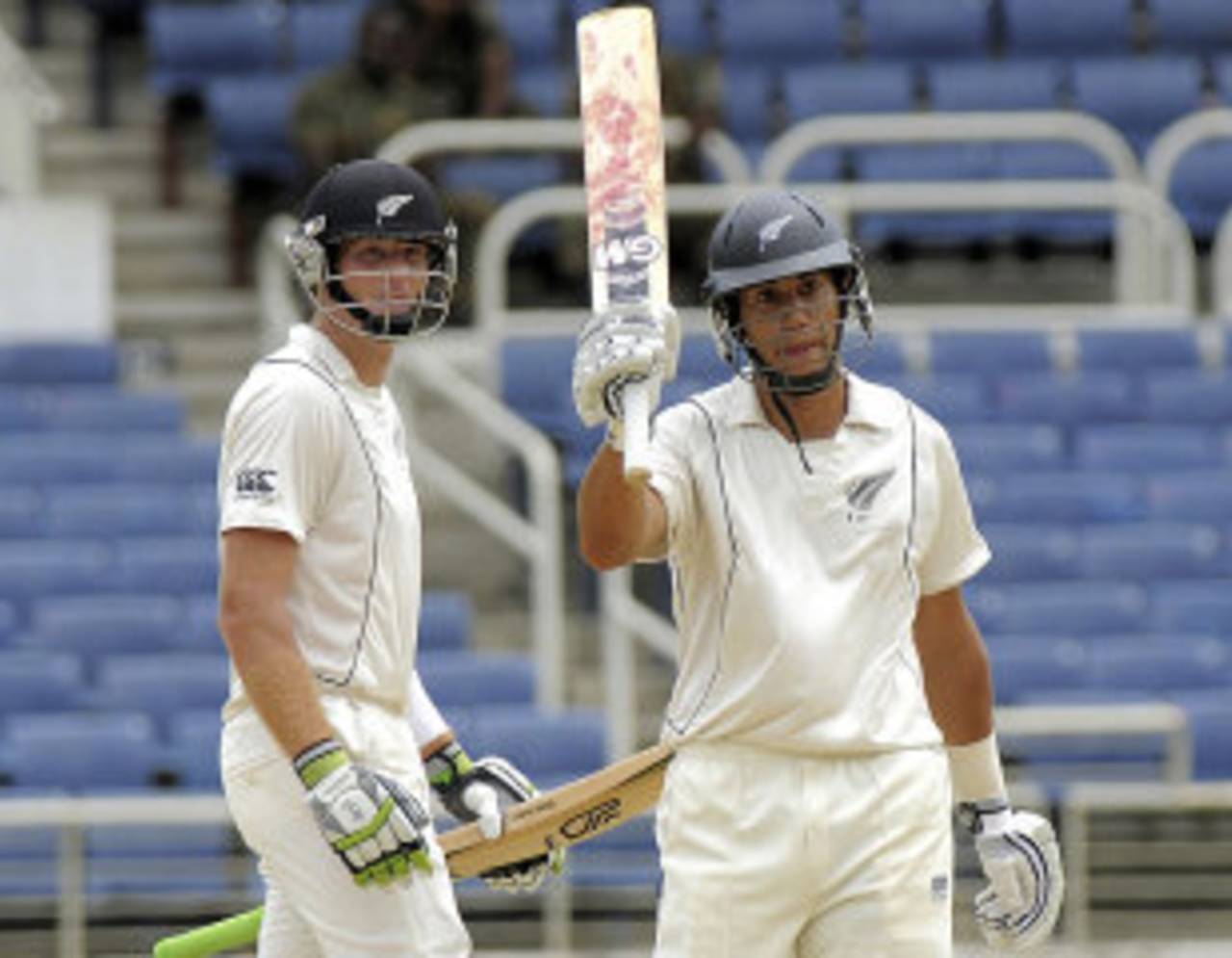It is a sin for Test batsmen to get in, make 40 or 50, and then get out, especially on pitches that do not aid bowlers much. New Zealand committed this sin once again on the first day at Sabina Park to be dismissed for a middling total. They will find that Test matches cannot be won regularly without hundreds on their score sheet.
Coming in to the second Test, Ross Taylor and his team were of the belief that they were not too far away from where they wanted to be in terms of consistent batting performances at the top of the order. A total of 260, which included several contributions from tailenders, in an innings that ended in 82.5 overs indicated they were wrong.
New Zealand's batsmen have scored only nine centuries in 14 Tests over the last two years. Three of those centuries were against Zimbabwe. They have 34 half-centuries in that period, so the conversion rate is poor. This latest failing in Kingston is not a one-off but another example of the consistent underperformance of New Zealand's top order.
The scarcity of hundreds could be due to a number of reasons: a lack of discipline, the inability to concentrate for long periods, or poor preparation for the tour. In the West Indies, only Martin Guptill has batted consistently for New Zealand, scoring 235 runs in three innings. He came closest to a hundred, before he inexplicably lost his composure on 97 in Antigua.
Before this tour, Guptill had spent time playing county cricket for Derbyshire, and said he found the experience "massively helpful". It shows. The last time any of the others played long-form cricket was the home series against South Africa in March. Guptill does not think his team-mates not preparing in similar fashion is affecting their performances because, "the guys have played a lot of cricket and know what they need to do to prepare for a tour."
None of the New Zealand batsman, however, were able switch seamlessly between formats like Chris Gayle did. And despite Gayle scoring a century after an 18-month absence from Test cricket, he too said he found it challenging.
In the absence of the injured Daniel Vettori, Brendon McCullum and the captain Ross Taylor were the two most experienced players in a young team. McCullum received a tough delivery from Tino Best, which he edged behind before he had scored. Taylor scored 60 but he needed to do more and show the way forward for the rest of the batting line-up. He played one attacking shot too many during a battle with Best and lost.
Kane Williamson's rearguard that saved the Wellington Test against South Africa now seems rather long ago. Playing his 13th Test, Williamson was let of by the part-time spinner Narsingh Deonarine - a sharp caught-and-bowled chance on the stroke of tea.
Soon after play resumed, though, Williamson chased a wide one from the same bowler and edged to first slip. His dismissal betrayed a lack of awareness of the situation New Zealand were in at 161 for 3. The Dean Brownlie who made hard-fought fifties against Australia in December 2011, in conditions more challenging than these in the Caribbean, poked tamely and was caught behind.
Shortly after Brownlie's dismissal, Guptill seemed to be cramping up and did some stretches a ball before responding to Kruger van Wyk's call for a sharp single. Given the situation New Zealand were in, he should have just said no, but didn't and was run out. He offered no excuses for that mishap and said he just didn't get off the blocks fast enough.
The odd half-century helps individual averages but, to pull weight as a team, New Zealand's batsmen have to push themselves harder and score big hundreds. Much harder than they have done in the West Indies. The solitary fighting century stand, like the one between Taylor and Guptill today, simply won't cut it.
Subash Jayaraman is a freelancer, blogger and podcaster based in Pennsylvania. He tweets here.
